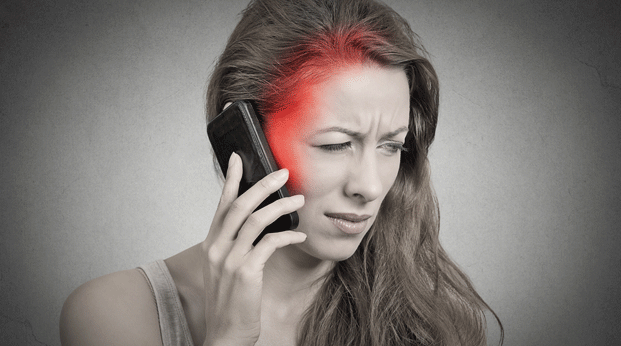
Effects of Mobile Devices on Human Health
Mobile devices have become an integral part of modern life. Smartphones, tablets, and other mobile technologies have revolutionized communication, entertainment, and productivity. However, alongside the numerous benefits, the widespread use of these devices has raised concerns about their potential effects on human health. From mental health implications to physical issues, mobile device usage has profound consequences for individuals’ well-being.
This blog post explores the various ways mobile devices impact human health, examining both physical and psychological aspects.
1. Physical Health Effects
a. Musculoskeletal Problems
b. Eye Strain and Vision Problems
c. Sleep Disruption
d. Potential Effects of Radiation Exposure
a. Musculoskeletal Problems
Prolonged use of mobile devices can lead to a range of musculoskeletal problems. The term “text neck” has become common, referring to the strain placed on the neck muscles from looking down at screens for extended periods. This poor posture can lead to discomfort, pain, and even more serious long-term issues like chronic neck and shoulder pain.
Moreover, repetitive use of hands and fingers for texting or typing can lead to conditions such as tendinitis and carpal tunnel syndrome. As mobile devices do not naturally promote ergonomic use, users are prone to developing repetitive strain injuries (RSIs).
b. Eye Strain and Vision Problems
“Digital eye strain” or “computer vision syndrome” is a significant issue linked to mobile device usage. Staring at small screens for prolonged periods can cause:
- Dry eyes
- Blurred vision
- Eye fatigue
- Headaches
The blue light emitted from mobile screens contributes to this problem. Blue light not only leads to discomfort but also disrupts the body’s natural sleep-wake cycle, as it suppresses melatonin production, the hormone that regulates sleep.
c. Sleep Disruption
Mobile devices are known to interfere with sleep patterns. Many users check their phones right before bed, exposing themselves to the blue light that inhibits melatonin secretion. This delays the onset of sleep and reduces sleep quality.
In addition, the constant flow of notifications and alerts can disturb sleep even after falling asleep. The habit of checking phones in the middle of the night, known as “sleep texting” or “sleep scrolling,” can fragment sleep cycles and lead to chronic sleep deprivation.
d. Potential Effects of Radiation Exposure
There has been ongoing debate about the potential health risks associated with radiation emitted by mobile devices. While these devices emit non-ionizing radiation, which is considered less harmful than ionizing radiation (such as from X-rays), concerns still exist about long-term exposure, particularly regarding its link to cancer.
Studies have not yet conclusively proven the harmful effects of mobile radiation, but the World Health Organization (WHO) has classified radiofrequency electromagnetic fields as possibly carcinogenic. As a precaution, many health agencies recommend minimizing direct contact with mobile phones, such as using headphones for calls or reducing usage time.
Also Read
2. Mental and Emotional Health Effects
a. Increased Stress and Anxiety
b. Impact on Attention and Cognitive Function
c. Addiction and Dependency
d. Social Isolation and Relationship Strain
a. Increased Stress and Anxiety
Mobile devices, particularly smartphones, can be a significant source of stress and anxiety. The constant connectivity to social media, emails, and messages can create a sense of pressure to always be available. The “always-on” culture has led many people to feel overwhelmed by the sheer volume of information and interactions.
Moreover, the continuous exposure to notifications, alerts, and updates can trigger “notification anxiety,” where individuals feel compelled to check their phones frequently. This constant need to stay connected can elevate stress levels and contribute to feelings of anxiety.
b. Impact on Attention and Cognitive Function
Mobile devices have a significant effect on attention span and cognitive abilities. With the rise of multitasking—switching between apps, texts, emails, and social media feeds—our brains are forced to divide attention between numerous stimuli. Studies have shown that this can reduce the ability to focus, impair memory retention, and lower productivity.
Over time, frequent multitasking can rewire the brain, reducing the ability to concentrate on tasks for extended periods. This has been particularly concerning in children and adolescents, who are in critical stages of cognitive development.
c. Addiction and Dependency
For some individuals, mobile device use can become compulsive, leading to what is termed “smartphone addiction” or “nomophobia” (the fear of being without a mobile phone). Like other addictions, excessive mobile phone use can interfere with daily life, work, and personal relationships.
The design of mobile apps, especially social media platforms, often encourages addictive behaviors. Features like endless scrolling and push notifications are designed to keep users engaged, making it difficult for many to set healthy limits on their screen time.
d. Social Isolation and Relationship Strain
Ironically, while mobile devices are designed to foster communication, excessive use can lead to social isolation. When individuals prioritize interactions on their devices over real-world relationships, it can strain friendships, family connections, and romantic partnerships.
For example, “phubbing” (phone snubbing) is the act of ignoring someone in favor of checking a smartphone. This behavior can lead to feelings of neglect and resentment in personal relationships, reducing the quality of interpersonal communication and emotional intimacy.
3. Behavioral and Developmental Impact on Children and Adolescents
The impact of mobile devices on young users is a growing concern. Children and adolescents are particularly vulnerable to the adverse effects of prolonged screen time, which can affect their physical, mental, and emotional development.
Excessive mobile use in children has been linked to:
- Delayed language development due to reduced face-to-face interaction
- Increased risk of obesity from sedentary screen time
- Behavioural problems such as aggression and irritability
- Higher rates of attention-deficit disorders
Moreover, exposure to inappropriate content, cyberbullying, and the pressure to conform to online norms can severely affect young users’ mental health, leading to anxiety, depression, and low self-esteem.
4. Strategies for Minimizing Negative Health Effects
While mobile devices are unlikely to disappear from our lives anytime soon, there are ways to mitigate their negative effects on health:
- Take regular breaks – Follow the 20-20-20 rule: every 20 minutes, take a 20-second break and look at something 20 feet away to reduce eye strain.
- Practice better ergonomics – Hold your device at eye level to avoid neck strain and use both hands while texting to avoid overuse injuries.
- Limit screen time before bed – Avoid using mobile devices an hour before sleep to reduce the effects of blue light on sleep quality.
- Turn off unnecessary notifications – This can help reduce stress and the compulsion to check your phone frequently.
- Set app usage limits – Many smartphones now offer tools to track and limit app usage, helping users manage screen time more effectively.
- Engage in face-to-face interactions – Make conscious efforts to spend time with friends and family without the distractions of mobile devices.
- Use hands-free options – Reduce exposure to mobile phone radiation by using headphones or speakerphone when possible.
Mobile devices are powerful tools that have changed the way we live, work, and interact with the world. However, as their presence grows, so too do the potential health risks associated with their use. The physical, mental, and emotional effects of mobile device usage can be significant, but with conscious habits and moderation, these negative outcomes can be minimized.




